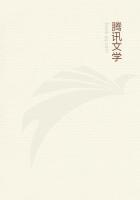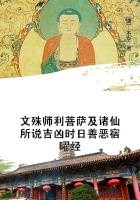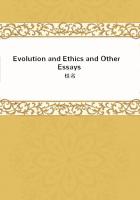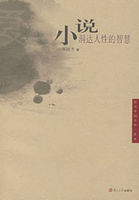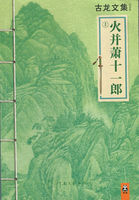The practice of pastoral tribes appears to furnish examples of both types of sacrament. Pastoral tribes, says Adolf Bastian, being sometimes obliged to sell their herds to strangers who may handle the bones disrespectfully, seek to avert the danger which such a sacrilege would entail by consecrating one of the herd as an object of worship, eating it sacramentally in the family circle with closed doors, and afterwards treating the bones with all the ceremonious respect which, strictly speaking, should be accorded to every head of cattle, but which, being punctually paid to the representative animal, is deemed to be paid to all. Such family meals are found among various peoples, especially those of the Caucasus. When amongst the Abchases the shepherds in spring eat their common meal with their loins girt and their staves in their hands, this may be looked upon both as a sacrament and as an oath of mutual help and support. For the strongest of all oaths is that which is accompanied with the eating of a sacred substance, since the perjured person cannot possibly escape the avenging god whom he has taken into his body and assimilated. This kind of sacrament is of the Aino or expiatory type, since it is meant to atone to the species for the possible ill-usage of individuals.
An expiation, similar in principle but different in details, is offered by the Kalmucks to the sheep, whose flesh is one of their staple foods. Rich Kalmucks are in the habit of consecrating a white ram under the title of the ram of heaven or the ram of the spirit. The animal is never shorn and never sold; but when it grows old and its owner wishes to consecrate a new one, the old ram must be killed and eaten at a feast to which the neighbours are invited.
On a lucky day, generally in autumn when the sheep are fat, a sorcerer kills the old ram, after sprinkling it with milk. Its flesh is eaten; the skeleton, with a portion of the fat, is burned on a turf altar; and the skin, with the head and feet, is hung up.
An example of a sacrament of the Egyptian type is furnished by the Todas, a pastoral people of Southern India, who subsist largely upon the milk of their buffaloes. Amongst them the buffalo is to a certain degree held sacred and is treated with great kindness, even with a degree of adoration, by the people. They never eat the flesh of the cow buffalo, and as a rule abstain from the flesh of the male. But to the latter rule there is a single exception. Once a year all the adult males of the village join in the ceremony of killing and eating a very young male calfseemingly under a month old. They take the animal into the dark recesses of the village wood, where it is killed with a club made from the sacred tree of the Todas (the Millingtonia). A sacred fire having been made by the rubbing of sticks, the flesh of the calf is roasted on the embers of certain trees, and is eaten by the men alone, women being excluded from the assembly. This is the only occasion on which the Todas eat buffalo flesh. The Madi or Moru tribe of Central Africa, whose chief wealth is their cattle, though they also practise agriculture, appear to kill a lamb sacramentally on certain solemn occasions. The custom is thus described by Dr. Felkin: A remarkable custom is observed at stated timesonce a year, I am led to believe. I have not been able to ascertain what exact meaning is attached to it. It appears, however, to relieve the people's minds, for beforehand they evince much sadness, and seem very joyful when the ceremony is duly accomplished. The following is what takes place: A large concourse of people of all ages assemble, and sit down round a circle of stones, which is erected by the side of a road (really a narrow path). A very choice lamb is then fetched by a boy, who leads it four times round the assembled people. As it passes they pluck off little bits of its fleece and place them in their hair, or on to some other part of their body. The lamb is then led up to the stones, and there killed by a man belonging to a kind of priestly order, who takes some of the blood and sprinkles it four times over the people. He then applies it individually. On the children he makes a small ring of blood over the lower end of the breast bone, on women and girls he makes a mark above the breasts, and the men he touches on each shoulder. He then proceeds to explain the ceremony, and to exhort the people to show kindness . When this discourse, which is at times of great length, is over, the people rise, each places a leaf on or by the circle of stones, and then they depart with signs of great joy. The lamb's skull is hung on a tree near the stones, and its flesh is eaten by the poor. This ceremony is observed on a small scale at other times. If a family is in any great trouble, through illness or bereavement, their friends and neighbours come together and a lamb is killed; this is thought to avert further evil. The same custom prevails at the grave of departed friends, and also on joyful occasions, such as the return of a son home after a very prolonged absence. The sorrow thus manifested by the people at the annual slaughter of the lamb seems to show that the lamb slain is a sacred or divine animal, whose death is mourned by his worshippers, just as the death of the sacred buzzard was mourned by the Californians and the death of the Theban ram by the Egyptians. The smearing each of the worshippers with the blood of the lamb is a form of communion with the divinity; the vehicle of the divine life is applied externally instead of being taken internally, as when the blood is drunk or the flesh eaten.
2. Processions with Sacred Animals

